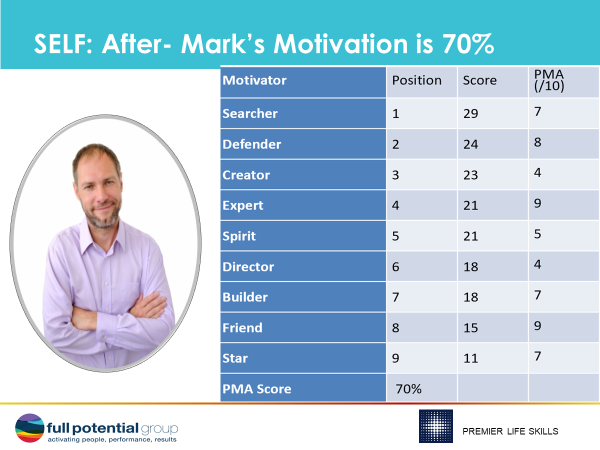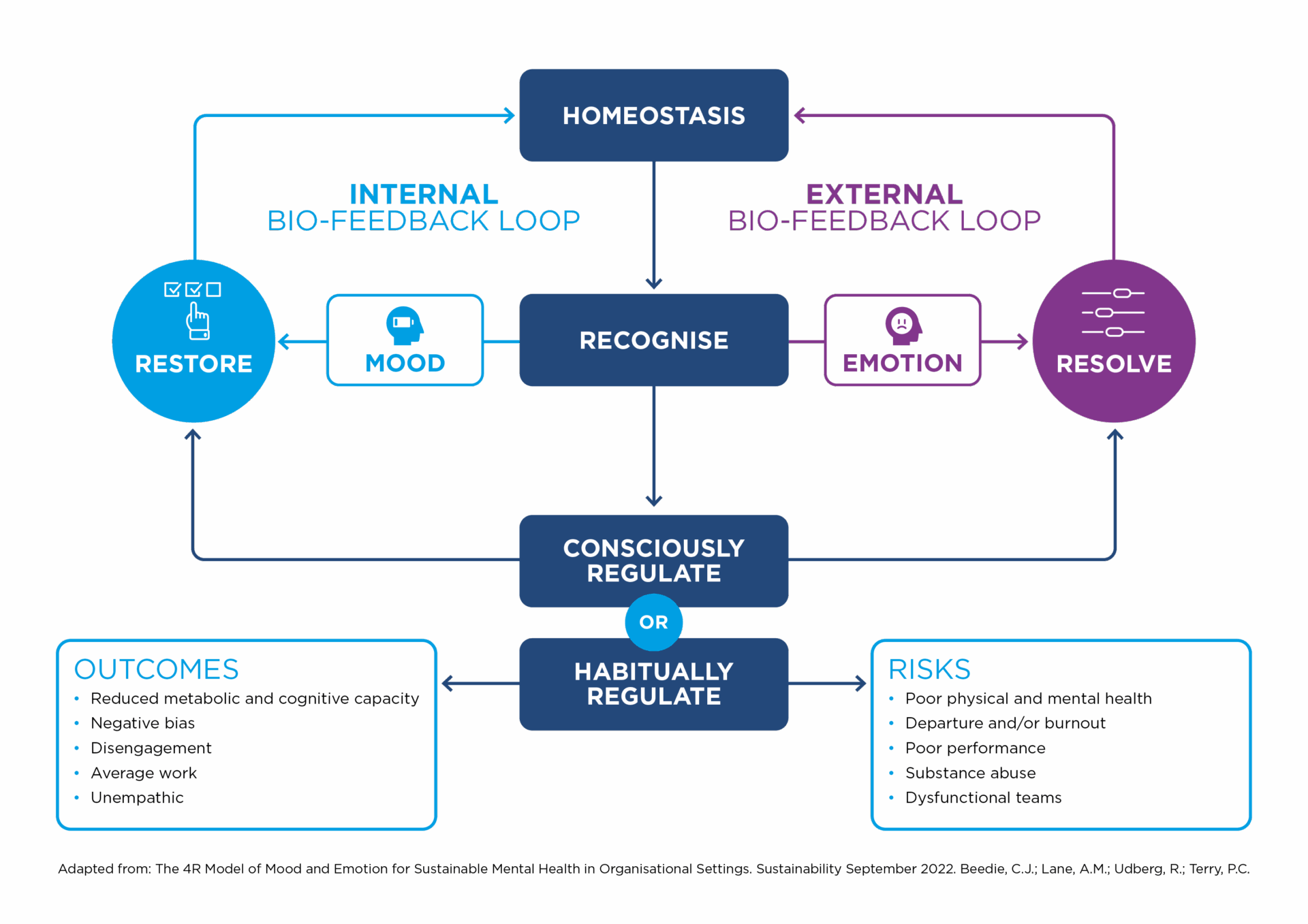Improve leadership and motivation in a crazy, busy world

In this crazy, busy world, leaders need to change even faster. Often trying to be more agile and achieve more with less is a constant and tiring struggle. You can break out of the cycle of craziness and become much more effective when you understand your energy and motivation. Knowing your own energy, giving motivational drivers and those of your team, your colleagues, clients, customers and key stakeholders, cuts through the craziness and helps you deliver what’s needed simpler, better and faster. 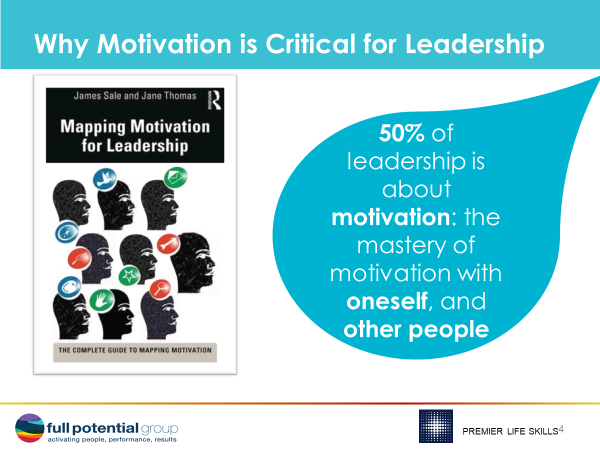
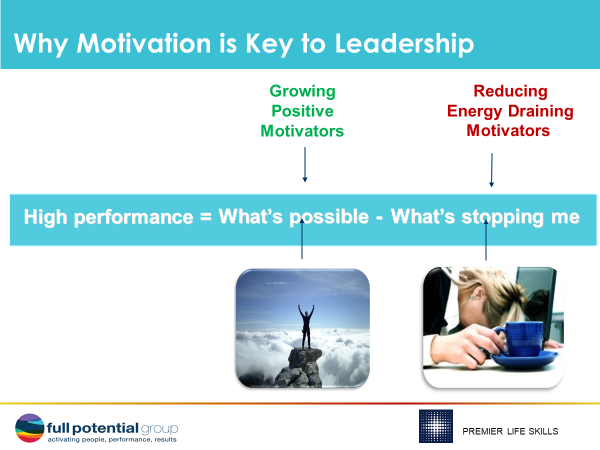
- Start by measuring your own energy and motivation
- Know your top 3 motivators and use them to fire you up to achieve your goals and what you believe is possible
- Identify your bottom de-motivators (any energy-draining motivators) and do a damage limitation exercise to ensure they have minimal impact
- Ensure all your top motivators are at least 80% satisfied
- Know the motivators of the key people around you and press their motivational hot button
1. Start by measuring your own energy and motivation
The sad fact is that many people are disconnected from their energy. Less than 50% of people are accurate about what really motivates them. Learning the 3 roots of motivation and understanding which of 9 motivators are driving you and measuring them is often the missing link to activating new potential, especially in these crazy, busy times. 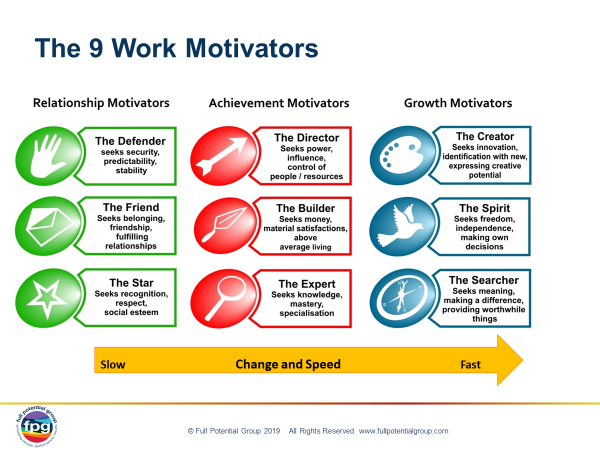
2. Know your top 3 motivators and use them to fire up your goals
The searcher
A searcher is someone who wants to make a difference. They want meaning and a sense of purpose in what they do. They need to feel they are doing worthwhile w ork that is adding real value with a clear reason why. Leaders should give them important, meaningful work and link their goals to the organisation. Also, ensure to give them regular and purposeful feedback on how they are making a difference. Searchers dislike repetitive work so avoid meaningless routines. Ask them for ideas on how to vary the work or the routines and if repetitive routines are unavoidable, find ways that their value can be demonstrated. For example, ask the person benefiting from their work to explain to the searcher how it is helping them in their work.
 The spirit
The spirit
Spirits thrive on freedom, autonomy and independence to give them a sense of empowerment and ownership over something, whilst being clear on your expectations. Encourage the mindset that they are really Managing Directors of their own business, as spirits want to see their role as one they are doing, not for the organisation, but for themselves. Avoid too many rules or procedures by considering ways to be flexible and steer clear of perpetually summoning colleagues to your office. Instead set aside time each week where individuals can come in and talk to you about any issues.
The creator
These people are about being creative and innovative so give them an original project. Get them focusing on something new or some aspect of continuous improvement that will make a difference to the team or business. Bear in mind that routine invariably means boring to the creator, and boring leads to mistakes.
 The expert
The expert
Being the go-to person, really excelling in a particular area of expertise, is what the expert is all about. Motivate them by helping them build their knowledge. Give them more experience and encourage them to share their insight. They can be great coaches and mentors, as well as people who are either learning more expertise, or sharing their expertise with others. Never allow an ‘expert’ to get stagnated by failing to develop the. Organisations without a learning culture or with inadequate training programmes are likely to be a turn off.
The builder
Someone with strong builder characteristics likes an above average standard of living. They are target-driven and like to feel that they are achieving things. To them, money and material satisfaction are very important. They are the only person in the team where it is critical to look at their remuneration / bonus. Performance related pay is a motivator. Give them stretch goals and targets because they like exceeding their KPIs. Since they appreciate the value of money, they dislike organisations that appear to waste it. They like employers that show sound economic decisions, so inform them of how financially responsible the organisation is, and how the systems and processes add to the bottom line. 
The star
Stars love social esteem. Their motivational hot buttons are very much about public recognition for being great at what they do. Give them opportunities to shine and where they are going to be recognised by others. To tell a star merely that ‘you have been successful in exceeding all you targets’ will not get the motivational juices going so ensure to adjust the regular appraisal scheme. What language is used? How can it be refined with specific recognition and rewards?
 The friend
The friend
Friends like to feel connected with the business and team. Teamwork and collaboration are very important. They need to feel supported and involved and tent to enjoy organising team social events and supporting colleagues. Sincerity is also crucial. The slightest suggestion that someone is practising a ‘management technique’ on them, or simply doing ‘this’ because they must, negates the importance of the relationship. So, internalising management and coaching skills are essential.
The defender
Defenders like to feel safe, maintain the status quo, minimise risk and thrives on continuity. They are motivated by regular communication and feel safer when things are predictable, so they know what is going on. Honest communication fosters a sense of security, as does a consistent style of leadership. If they do not know where they are with their manager, then their focus will not be on their work. Finally, avoid surprises. Defenders can deal with change, so long as the rationale is explained to the, – before it is implemented.
3. Identify your bottom de-motivators and do a damage limitation exercise to minimise their impact
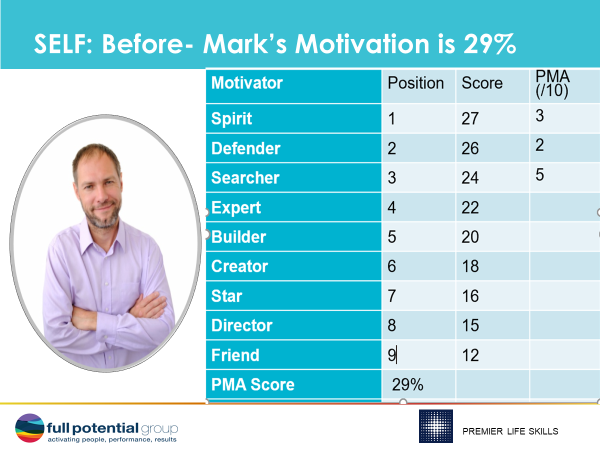
4. Ensure your top 3 motivators are at least 80% satisfied
In Mark’s example, his top motivator, ‘Searcher’ (motivated by purpose, meaning and making a difference), became 70% satisfied, so his leadership challenge was to continue to strengthen his own and team purpose and get feedback on the difference he was making. His ‘Defender’ (motivated by safety, security and certainty) became 80% satisfied, so building his leadership resilience and identifying ways he could feel safe in his crazy world, boosted his energy levels. He still has work to do to improve his ‘Creator’ (motivated by being more innovative, bringing new ideas and continuous improvement into his work).
5. Know the motivators of key people around you and press their motivational hot buttons
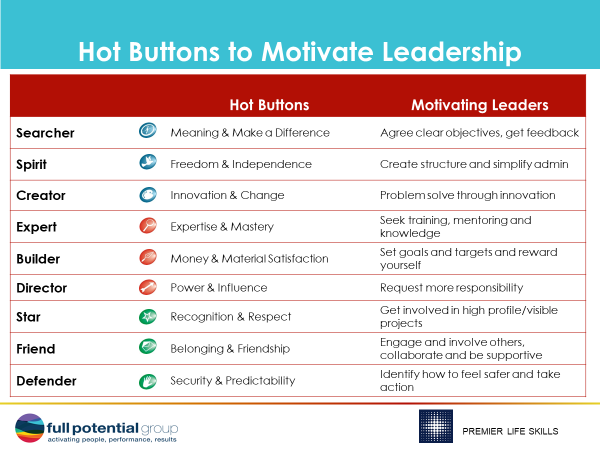
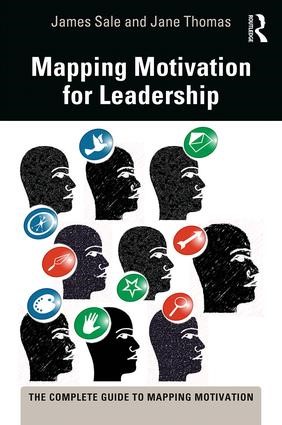




 The spirit
The spirit
 The expert
The expert

 The friend
The friend
